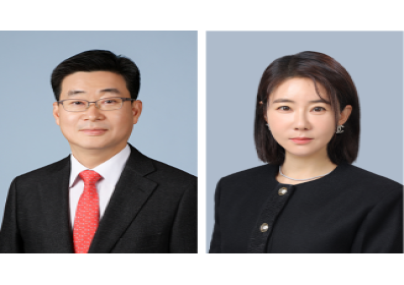Building on the success of the 2013 IP Conference series, ALB held its inaugural Japan IP Conference on April 15, 2014, attracting more than 100 of Japan’s leading senior counsel, brand protection experts, IP managers and litigators to the heart of Tokyo’s Akasaka business district. Supported by Thomson Reuters IP & Science, Baker & McKenzie, UBIC, the Asia-Pacific IP Association, the Roppongi Bar Association, the Japan In-House Counsel Network and the American Chamber of Commerce Japan, the event conveyed ALB’s continued presence in Japan as an international media and knowledge platform bridging local, regional and global expertise.
Aligned with the Japan Patent Office’s (JPO) objective of “achieving the world’s fastest and highest quality IP system,” Commissioner Hideo Hato opened the conference explaining how international IP harmonisation initiatives are embedded into the government’s Japan Revitalisation Strategy and the subsequent strengthening of the Design, Trademark and the Patent Attorney Acts.
The stretch of government keynotes continued with a presentation from one of ALB’s most loyal supporters, Director-General Peter Cheung of the HK IP Department. Cheung gave an update on the IP exchange initiative, reiterating the important collaboration efforts with government and industry leaders in Hong Kong, Japan, Korea and across the region. He surprised delegates by concluding his speech with an impromptu song on IP monetisation, hinting on his next career move after his impending retirement from the public sector this month.
The World IP Organisation’s (WIPO) Japan representative Masaki Okamoto offered delegates an insight into Japan’s significant contribution to WIPO’s global services such as the free patent search system PATENTSCOPE or the CASE initiative, enabling the safe exchange of search and examination documentation related to patent applications. With the launch of the GREEN and Re:Search projects, WIPO is also pioneering IP management as a means to sustainability and healthcare development.
WIPO’s inter-governmental guidelines were well complemented by the subsequent industry case studies. Toyotaka Abe showed that Microsoft, as an owner of a large pool of patent rights, is the perfect example of how market leadership can be sustained in the technology field with the creation of clear IP transaction guidelines covering IP licensing, purchase and sale as well as the transfer of IP rights.
Another interesting group of sessions followed featuring government, industry and academic standpoints surrounding Standard Essential Patents (SEPs) and Fair, Reasonable and Non-Discriminatory (FRAND) licensing. Professor Shuya Hayashi of Nagoya University pointed out the anti-competitive impact of patent hold-ups and royalty stacking using the Apple vs. Samsung case and advised against injunctive relief in case of FRAND litigation. Qualcomm’s vice-president of Patents, George Whitten, in turn, provided an overview of the ICT industry, arguing that while the issue exists, there is no substantial empirical evidence of the aforementioned patent infringements, neither of their adverse economic effects.
Commissioner Hiroyuki Odagiri of the Japan Fair Trade Commission (JFTC) has gave a detailed rundown on JFTC`s extensive work in reconciling reasonable IP monetisation and innovation with fair competition practices. JFTC has pioneered the standardisation of patent pool arrangements, guarding the fragile benefits of standard-setting including quicker product commercialisation and customer convenience, while acting on antitrust concerns, the type of issues voiced by Whitten and Hayashi. This has been evidenced by JFTC’s numerous enforcement actions including the cases of the Pachinko Manufacturing Patent Pool’s, Hokkaido Shimbun Press’, Microsoft’s and Qualcomm’s monopolistic activities as well as the IP merger of the Tokyo Stock Exchange Group and the Osaka Stock Exchange.
Following a morning dominated by discussions surrounding hard IP, the afternoon focused on soft IP matters with an overarching theme of brand protection and anti-counterfeiting. In the digital piracy panel discussion, KT Ang of IFPI Asia gave an overview of the challenges faced by the global entertainment industry and the various counterpiracy methods available to including advertising, litigation and website blocking. Joe Welch of 21st Century Fox took this one step further, arguing that the obsolete “notice and take-down” approach should be strengthened with the blocking of “overseas egregious rogue (pirate) sites” and downgrading and delisting penalties imposed by search engines. Using the examples of the EU and the cases of The Pirate Bay and Grooveshark, both Ang and Welch agreed that right holders should be able to apply for injunctive relief, essentially requiring Internet Service Providers (ISPs) to take blocking action without exposing them to liability to infringement. Yoichiro Hata of the Recording Industry Association of Japan showed an even higher standard adopted by Japan with the Amended Copyright Law, which effectively criminalises the act of downloading music and/or motion pictures with knowledge of the illegal nature of the source and legal pay-for alternatives.
Mizuho Kageshima of Coach Japan gave an insightful case study on Coach’s proactive brand protection strategy incorporating proprietary counterfeit tracking services and elaborate watermarks. The subsequent anti-counterfeiting panel agreed on the three challenges of identifying and prosecuting infringers: their virtual, mobile and repetitive nature. Kensaku Takase of Baker McKenzie explained the increasing difficulty of distinguishing between parallel imports, counterfeit products and genuine sources and called for attention on the implications of 3D printing for the anti-counterfeiting movement. Takamiki Nishikawa of Fox International has therefore argued that more responsibilities must be taken by ISPs and enforcement agencies, including the suspension of internet connection in the case of fake listings, a penalty still rarely imposed. Ang also emphasised Japan`s struggles in transitioning from a successful physical anti-counterfeit strategy towards a digitalised framework. The panel concluded with the need for a balanced mechanism combining both online and offline measures, prevention as well as enforcement. Best practices of such an approach were given by Oki Data Corporation and Unilever, using candid pictures of anti-counterfeit actions and describing the importance of the 4 PR: Press Releases, Public Relations, Protecting Reputation and Personal Relations.
The conference closed with Ayumi Nishino of NEC Corporation offering hands-on guidance on how litigation-shy Japanese companies can take control of IP dispute settlement applying US litigation best practices to the Japanese context. She encouraged the use of e-discovery processes including model orders and predictive coding and warned about the caveats of language barriers and the choice between external v in-house reviewers.
JPO Commissioner Hideo Hato welcomed ALB`s initiative in providing an international backdrop to the discussion of IP management and protection matters in each of the APAC jurisdictions, confirming that there is a continuous need for such dialogue. This is a significant vote of confidence in the ALB IP conference series, as a trusted brand assisting and advancing innovation and brand protection in the APAC region.


